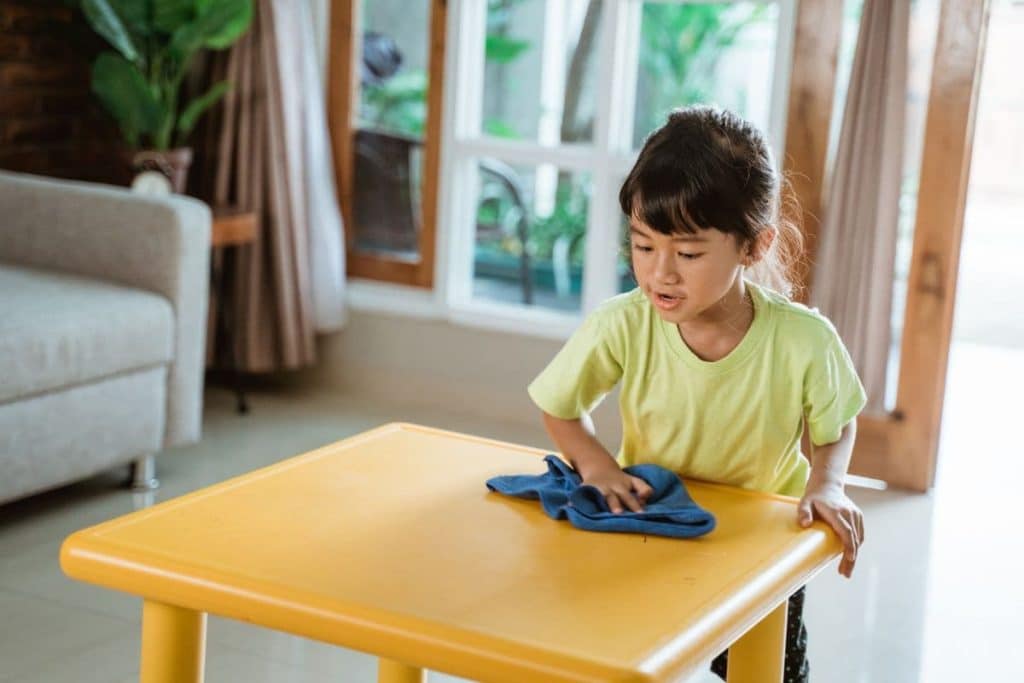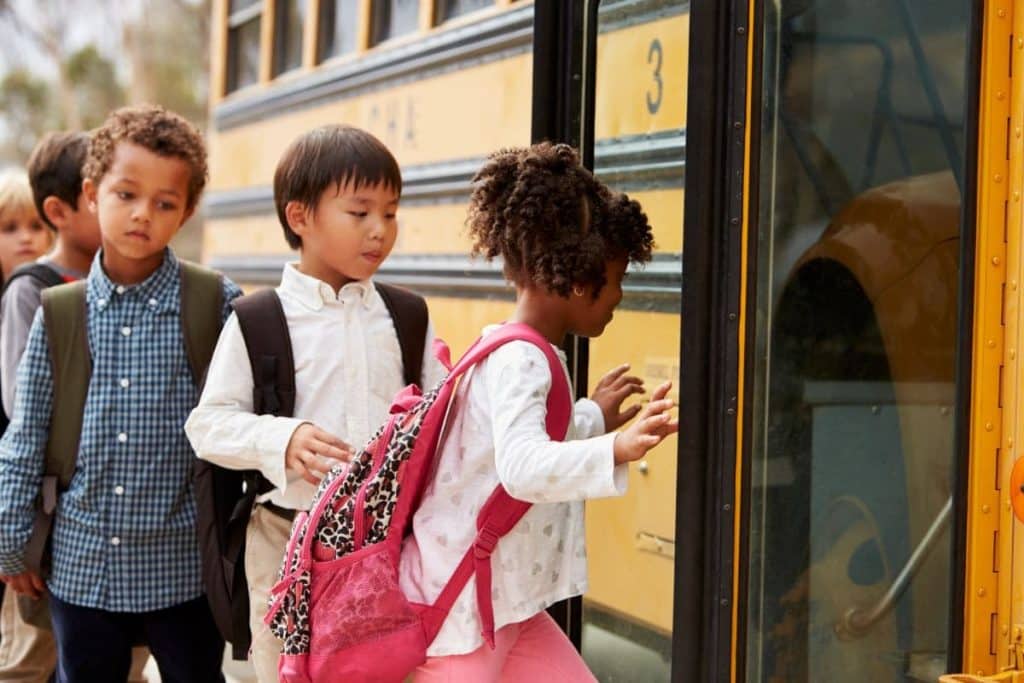A new trend in parenting has emerged- the free range parenting style. This style of parenting, which advocates for less adult supervision and more independence in children, has sparked many debates. Like a pendulum swinging away from the popular helicopter parenting style, the free range parenting style offers a breath of fresh air, but is it the right approach for everyone?
Key Takeaways:
- Free-range parenting emphasizes independence and resilience in children by providing them with judicious parental supervision based on their maturity level.
- It encourages autonomy, builds confidence, and promotes healthy social development while also maintaining clear boundaries and expectations.
- Successful implementation requires assessing the child’s readiness for free range parenting as well as setting boundaries, expectations & building a supportive community.
Understanding Free Range Parenting

Free-range parenting is a philosophy based on the notion that children learn optimally when they navigate the world independently, a contrast to other parenting styles, such as authoritative parenting, that advocate for a structured and supervised environment.
Yet, how does this method compare to others, and what complexities arise in its implementation?
Defining Free Range Parenting
Lenore Skenazy, often credited as the pioneer of free-range parenting, brought this style to the forefront when she allowed her 9-year-old son to ride the New York subway alone. This parenting approach focuses on fostering independence in children by providing them with judicious and limited parental supervision, based on their maturity level. In essence, it allows children to explore the world and engage in activities without constant adult supervision, a stark departure from the more hands-on approach of helicopter parenting.
Skenazy and other advocates of free range parenting believe that allowing children to experience the world first-hand, make their own decisions, and learn from their own mistakes, is crucial in raising independent adults. This viewpoint is echoed by organizations such as Let Grow, which advocates for the development of children through the promotion of independence.
The Free Range Parenting Approach
Parents practicing free-range parenting equip their kids with essential life skills and then grant them the liberty to apply these skills in real-world situations. For instance kids today, a free-range parent might allow their child to walk to school or take public transit on their own, a practice that other parents might frown upon due to safety concerns. This method is not indicative of neglect, but rather, it promotes independence and resilience in children.
Importantly, free-range parenting is not synonymous with permissive parenting. Permissive parents often let their children do whatever they want, without any instruction or supervision. In contrast, free-range parents set rules and allow natural consequences to teach their children valuable life lessons.
Comparing Parenting Styles
Among the diverse range of parenting styles, free-range parenting distinctly sets itself apart. As opposed to helicopter parenting, characterized by persistent supervision and intervention, free-range parenting grants children greater autonomy and opportunities for environmental exploration. Research has suggested that helicopter parenting can lead to a decreased sense of autonomy and competence in children, making free-range parenting a breath of fresh air for those looking for an alternative approach.
Free-range parenting is not a lack of rules and structure. There are still boundaries, expectations and guidance that come with this type of parenting. Unlike permissive parents who often avoid confrontation by spoiling their children, free-range parents set clear boundaries while educating their children to manage the freedom provided to them. The village mentality in parenting also plays a role in this approach, where parents within a community provide mutual support for raising their own children and intervene when necessary.
Benefits of Free Range Parenting

Though free-range parenting carries certain risks, it is accompanied by a multitude of benefits. By allowing children to explore, make mistakes, and learn from their experiences, this parenting style fosters independence, builds confidence, and promotes healthy social development.
Let’s assess these benefits more closely.
Fostering Independence and Problem-Solving Skills
Free-range parenting places a strong emphasis on promoting independence and self-sufficiency in children’ lives, enabling them to make independent decisions and solve their own problems, thus instilling vital life skills that will be beneficial well into adulthood. For example, free-range parents might encourage their children to engage in outdoor play, providing them with opportunities to explore their environment and learn through their experiences. This approach to raising free range kids aligns with the principles of free range parenting.
Beyond promoting independence, free-range parenting also encourages problem-solving skills in children.
When children are given the freedom to tackle challenges and confront difficulties independently, they learn to think critically and develop solutions to problems they encounter.
This range parenting method assumes that children are competent enough to tackle demanding tasks independently, thereby further child’s development and stimulating their problem-solving skills.
Building Confidence and Resilience
Free-range parenting allows children to:
- Develop the confidence required to independently maneuver life’s challenges
- Learn to rely on their abilities
- Make judicious decisions
- Take accountability for their actions
- Enhance their self-confidence and self-esteem
Resilience is another key attribute that free-range parenting fosters in children. By allowing children to encounter challenges and experience the consequences, parents can foster confidence, a positive attitude towards adversity, and the capacity to confront obstacles and progress with optimism and assurance.
Promoting Healthy Social Development
Free-range parenting also fosters positive social development in children and young people. By allowing children the freedom to interact with their peers, children get ample opportunities to develop their social skills without constant adult intervention.
Furthermore, free-range parenting provides children with opportunities to navigate their own social environments, fostering social skills such as negotiation and conflict resolution. It allows children the freedom to explore social situations on their own terms, promoting social development and teaching them how to interact effectively with others.
Challenges and Criticisms of Free Range Parenting

Despite its numerous advantages, free-range parenting does face its share of challenges solve problems and criticisms. From safety concerns to potential legal issues, free-range parents often find themselves navigating a tricky path.
Safety Concerns and Real Dangers
One of the main concerns with free-range parenting is safety. Critics argue that by allowing children to venture out alone, parents expose them to potential dangers such as accidents or abduction. However, proponents of free-range parenting argue that the perceived risks are often much higher than the actual ones, and that with the right preparation and guidance, many children really can safely navigate their world.
Despite these apprehensions, parents practicing free-range parenting can adopt numerous measures to ensure their children’s safety. These include:
- Teaching children about road safety and stranger danger
- Setting clear boundaries and rules
- Developing life skills such as swimming or first aid training.
Legal Issues and Running Afoul of Laws
Parents adopting the free-range approach may also encounter legal hurdles. In certain jurisdictions, laws require adult supervision for children up to a certain age, and parents who allow their children more freedom may find themselves running afoul of these laws. N
otably, the state of Utah has passed a law that alters the state’s legal definition of child neglect, allowing parents to permit their children to partake in independent activities without fear of prosecution.
While these legal issues can be substantial obstacles, they can be maneuvered by:
- Staying updated with local laws and rules
- Maintaining open communication with local authorities
- Participating in supportive communities for sharing experiences and advice.
Balancing Freedom and Responsibility
A key aspect of free-range parenting involves striking the right balance between offering freedom and instilling responsibility. This balance is essential to ensure that children don’t misuse their freedom and are aware of the responsibilities that come with it.
Striking this balance can be achieved by:
- Setting clear boundaries and expectations
- Encouraging children to make their own decisions within these boundaries
- Allowing natural consequences to teach important life lessons.
Ensuring that children understand the concept of freedom within boundaries is crucial in making free-range parenting effective and beneficial, while avoiding the involvement of child protective services.
Implementing Free Range Parenting: Tips and Strategies

If you’re contemplating adopting the free-range parenting approach, it’s prudent to familiarize yourself with the strategies and steps necessary for its successful integration into your parenting modus operandi.
Assessing Your Child’s Readiness
Before embracing the free-range parenting approach, it’s imperative to evaluate your child’s readiness. Key indicators include:
- The child’s problem-solving capabilities
- Desire for independence
- Sense of responsibility
- Good judgment
In addition, factors such as the child’s degree of independence, capacity for making responsible decisions, emotional maturity, and parent-child relationship should be taken into account.
Bear in mind, the readiness for free-range parenting isn’t determined solely by age. Rather it’s a combination of factors that dictate when and how much freedom should be given. While a child’s age does have an impact on their readiness, it’s their maturity and ability to handle increased autonomy that matter to most parents. Some factors to consider include:
- The child’s ability to follow rules and instructions
- Their understanding of safety precautions
- Their ability to make responsible decisions
- Their level of independence and self-confidence
By considering these factors, you can determine when your younger children are ready for more freedom and independence.
Setting Boundaries and Expectations
Establishing boundaries and expectations is a key step in executing free-range parenting. Clear boundaries provide a safe framework within which children can explore their independence. These boundaries should be communicated clearly, and consistently enforced.
As children grow and mature, boundaries can be adjusted to allow for more freedom. This gradual expansion of boundaries allows age children to take on more responsibility as they prove their ability to handle it. Consistency in enforcing boundaries and expectations provides a sense of stability and helps children understand and respect the limits set by their parents.
Building a Supportive Community
A supportive community can play a vital role in the success of free-range parenting. This might involve connecting with other parents with similar perspectives, offering mutual support, and sharing experiences and resources. Online communities and forums also offer spaces for free-range parents to connect, exchange advice, and discuss their parenting style.
In addition to connecting allowing kids with other parents, it’s important to maintain positive relationships with neighbors and extended family members. These individuals can form a vital part of your child’s supportive network, providing additional guidance and support.
Case Studies: Free Range Parenting in Action
Having discussed the principles, advantages, and challenges of free-range parenting, we can now examine some practical examples of this parenting approach.
America’s Worst Mom
Lenore Skenazy, dubbed “America’s Worst Mom,” is a well-known figure in the free-range parenting movement. This title was given to her after she allowed her 9-year-old son to ride the subway alone in New York City, sparking a media frenzy and much debate about her parenting style.
Ignoring the backlash, Skenazy defended her decision, asserting that her son was prepared for the experience, which was a significant stride towards promoting his independence. She went on to found the free-range kids movement and has become a vocal advocate for this parenting style.
Inspiring Success Stories
Free-range parenting has its share of success stories. One notable example is the Meitiv family in Maryland. After being charged with neglect for allowing their children to walk home from a park unaccompanied, they successfully appealed the ruling, drawing national attention to the free-range parenting movement.
While establishing a direct link between free-range parenting and success in adulthood is challenging, the principles of this parenting style – promoting independence, resilience, and problem-solving skills – are common traits in successful individuals. Whether it’s in the arts, sports, or the sciences, the ability to navigate the world independently and make informed decisions is a valuable life skill.
Wrapping Up
In conclusion, free-range parenting, with its focus on independence and minimal supervision, offers a unique approach to raising confident, resilient, and responsible children. While it’s not without its challenges, the benefits of this parenting style – including fostering problem-solving skills, building confidence, and promoting healthy social development – make it a worthy consideration for many parents today.
As with any parenting style, it’s essential to adapt and modify it according to the unique needs and circumstances of your family.
Frequently Asked Questions
What are the cons of free-range parenting?
Free-range parenting may present some drawbacks, such as lack of structure, increased parental responsibility, and potential safety and mental health risks. However, it is also believed to cultivate self-reliance, problem-solving skills, and independence in children.
What are the 4 types of parenting styles?
Four main parenting styles have been identified – authoritarian, authoritative, permissive and neglectful – and are based on the research of Diana Baumrind and Stanford researchers Eleanor Maccoby and John Martin. Parents do not need to stick to just one style, as different approaches may be more appropriate in different situations.
What is freestyle parenting?
Free-range parenting is an approach that allows children the freedom to explore and make their own decisions while also teaching them essential skills. This type of parenting encourages parents to expose their children to the world without direct supervision, so they can develop problem-solving skills.
What is the difference between free-range and gentle parenting?
Free-range parenting allows children a great deal of freedom, whereas gentle parenting provides relaxed guidance and sets limits in line with the child’s needs.
How does free-range parenting compare to other parenting styles?
Free-range parenting encourages independence and exploration, which is different from other parenting styles such as helicopter parenting which often involves close monitoring of the child’s activities.






